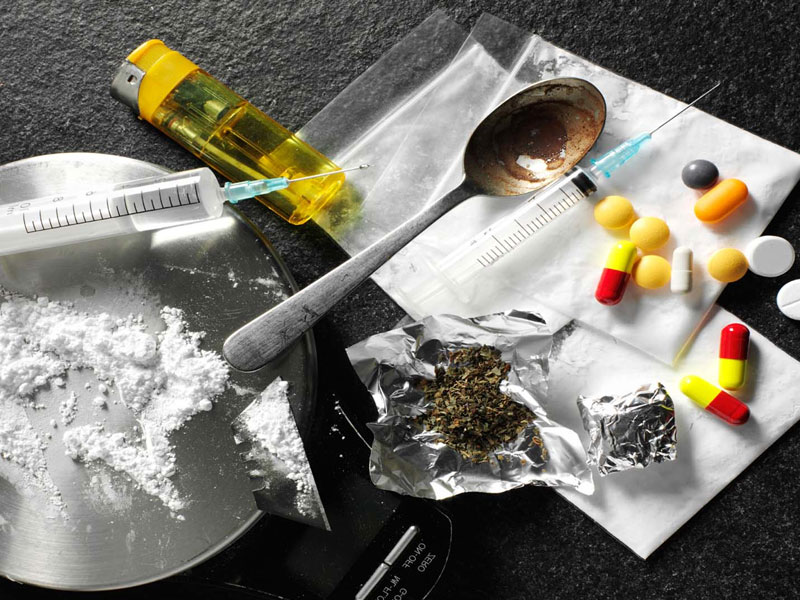We have all been taking drugs. Not prescription drugs, which we call medication or medicines colloquially. I mean, if you have ever drank tea, or taken a sip of coffee, cocoa, coke, an energy drink or just took a little bite from kolanut, you have taken a few hard drugs; amphetamine and caffeine at least. And don’t listen to those who say the doses of these substances in these common foods and drinks are negligible.
In the course of this write-up, we will be explaining some terminologies that relate to drug use for ease of flow. Prescription means a medication order written by a licensed health professional – a pharmacist, a doctor or a nurse. Drug abuse is different from drug misuse in the same way a drug addict is different from a drug dependent person.
The Food and Drug Administration (FDA) explains that the difference between abuse and misuse has to do with the individual’s ‘intention or motivation’. If a person takes any medicine that is only supposed to be taken with a prescription, and consumes it without being prescribed to him, that person has abused that medicine. If a person took the medicines prescribed to him the way he likes, not the way he is recommended to, the individual has misused that medicine.
One very important characteristic of abuse when it comes to medicines is repetitive action. It is not all prescription medicines that are abused however. There are certain medicines, which abusers tend to abuse and there are those they choose not to. It is based on the nature of the medicine and it has to be active in the brain, what is called a psychoactive effect.
NAFDAC arraigns suspects for distribution of fake drugs
Super 6 Play-off: Enyimba beat Lobi Stars as Rivers, Remo draw 2-2
But before going to the brain, a medicine has to be swallowed or injected. For instance, it is difficult to encounter persons that abuse metronidazole, the prescription medicine given for infective diarrhea that is so bitter as to being very unpalatable to the tongue, to the mouth, to the throat even though it is active on the brain. You will have to search wide to find someone who even finishes this medicine according to their prescription orders.
On the other hand, some sleeping tablets are palatable to the mouth and very active on the brain and cause one to ‘sleep like a baby’ and are therefore very prone to abuse.
Dependence and addiction when it comes to medicines has to do with something like a scale with a threshold. Dependence is on the outer end of this scale with a lower threshold while addiction is at the inner end of the scale.
A drug abuser (or even a misuser) begins to be dependent on a medicine when he physically seeks to repetitively take this medicine, without knowing that he is priming his brain to mentally continue seeking it until he becomes an addict. An addict therefore has reached the extreme end of the threshold for which there may not be a turning point unless a shrink successfully intervenes.
Now, back to those drugs highlighted in the beginning of our discourse. Amphetamine is found in tea (all types of tea); and caffeine is available in variable amounts in all energy drinks, coffee, all cola drinks, some chocolates and kolanut.
When you take any of the above products once in a while, you are a user, when you take them often or sometimes daily, you are an abuser, and when you take them multiple times in a day, you are dependent because you are physically attached to them.
By the time you notice some symptoms like cravings, headaches, and restlessness that resolve after taking these common foods and drinks, only for the symptoms to resurface a few hours later, you are an addict because you are mentally attached to them.
And do not be deceived, there are now energy drinks addicts (in epidemic proportion), kolanut addicts, coffee addicts and the like.
How do you break this cycle? First, you have to be aware that these common foods and drinks contain hard drugs and start becoming detached from them if you are inclined to using them often.
Just be an occasional user not an abuser. Frequently, for some mornings or evenings, try to take your mind off tea, cocoa or coffee and focus on other beverages that do not have caffeine, try those with malt extracts instead, or try your local pap.
Some other days try to let go – just fast. I have heard colleagues and some prominent personalities that successfully break the dependence cycle during the months of religious fasting (fasting periods of both Muslim and Christian faithfuls) and it runs for a few months after these, before picking up the dependence momentum again and breaking it next year.
The good thing with this is that they are not yet addicted, because they are able to function normally in those months without these drugs. By the time one becomes unable to break the dependency cycle even for religious’ sake, I’m afraid it is too late.
Auwal , a Public Health Physician writes from Abuja
Quote “And do not be deceived, there are now energy drinks addicts (in epidemic proportion), kolanut addicts, coffee addicts and the like”

 Join Daily Trust WhatsApp Community For Quick Access To News and Happenings Around You.
Join Daily Trust WhatsApp Community For Quick Access To News and Happenings Around You.


